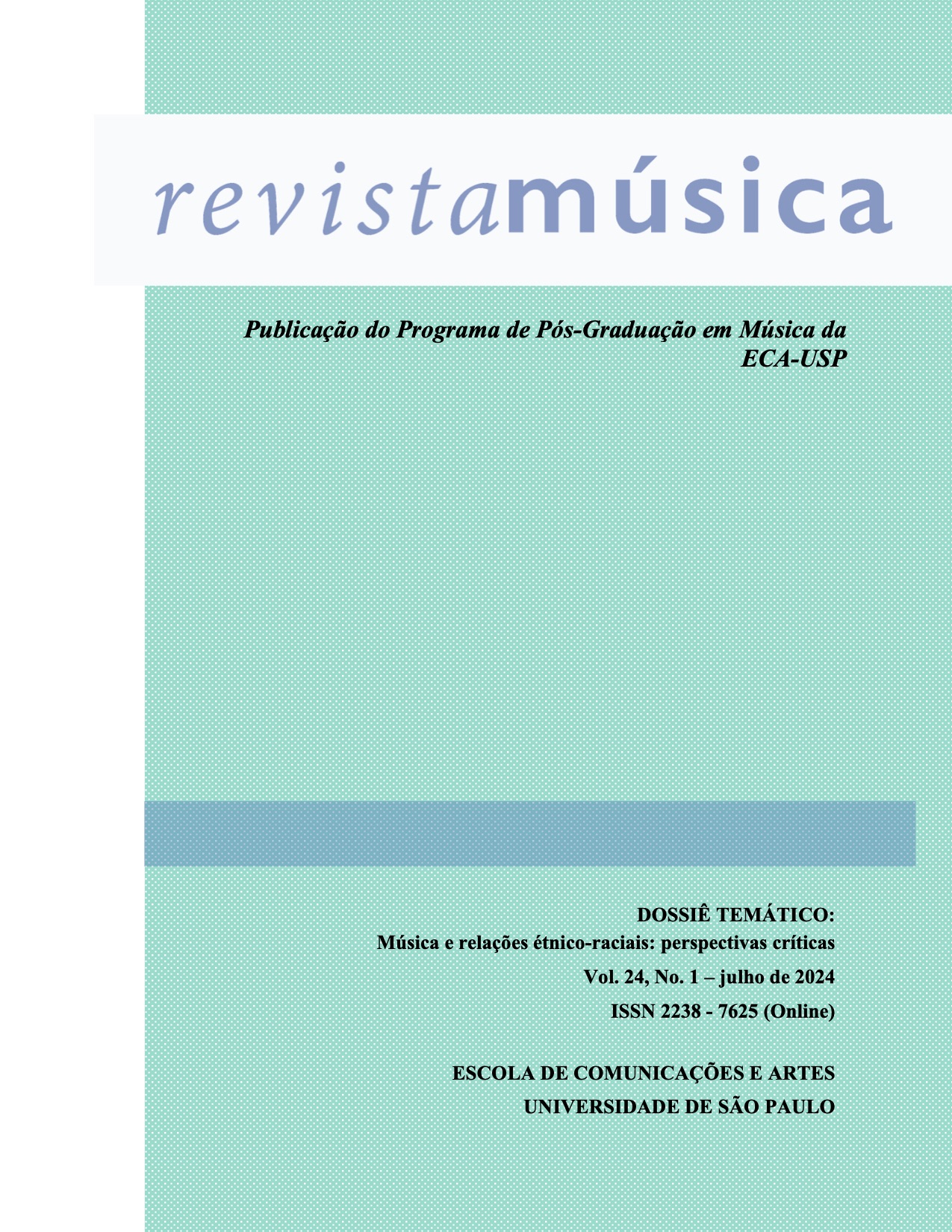Foreword: Music and Ethnic-Racial Relations
DOI:
https://doi.org/10.11606/rm.v24i1.229346Keywords:
Música e RacialidadeAbstract
By racializing the world, European modernity fragments, classifies and hierarchizes bodies and knowledge, producing colonial processes of extractivism and cultural appropriation marked by the extreme violence that sustains racism and anti-Black logics, which remain active to this day, grounded in a fallacious fiction of white superiority. This supposed superiority invalidates worldviews that do not fit into the exclusive standards of white, modern, Western, and cis-hetero-patriarchal cosmology. The production of musical knowledge is an integral part of this process. On the one hand, it reinforces colonial narratives and the original myths of white superiority, such as the purity of the Greco-Roman heritage or the direct use of enslaved spoils to support musical practices in Europe and colonized territories. On the other hand, the production of musical knowledge has also been a significant factor in the construction of political reorganization processes and the preservation of cultural legacies in the context of the African diaspora and indigenous peoples in the Americas. By keeping their musical traditions alive, inseparable from spiritual, political, ethical, and aesthetic values, these populations have built cultural resistance to the dehumanizing processes of European colonialism.
Downloads
References
Gomes, Nilma Lino. O Movimento Negro educador: saberes construídos nas lutas por emancipação. Petrópolis, RJ: Vozes, 2019.
Queiroz, Luis Ricardo Silva. Currículos criativos e inovadores em música: proposições decoloniais. In: Educação musical: diálogos insurgentes. Organizado por Viviane Beineke. São Paulo: Hucitec, 2023.
Pinho, Osmundo. Cativeiro: antinegritude e ancestralidade. Salvador: Segundo Selo, 2022.
Downloads
Published
Issue
Section
License
Copyright (c) 2024 Eduardo Guedes Pacheco, Felipe Merker Castellani

This work is licensed under a Creative Commons Attribution-NonCommercial-ShareAlike 4.0 International License.
Autores que publicam nesta revista concordam com os seguintes termos:
- Autores mantém os direitos autorais e concedem à revista o direito de primeira publicação, com o trabalho simultaneamente licenciado sob a CC Attribution-NonCommercial-ShareAlike 4.0 que permite o compartilhamento do trabalho com reconhecimento da autoria e publicação inicial nesta revista.
- Autores têm autorização para assumir contratos adicionais separadamente, para distribuição não-exclusiva da versão do trabalho publicada nesta revista (ex.: publicar em repositório institucional ou como capítulo de livro), com reconhecimento de autoria e publicação inicial nesta revista.
- Autores têm permissão e são estimulados a publicar e distribuir seu trabalho online (ex.: em repositórios institucionais ou na sua página pessoal) a qualquer ponto antes ou durante o processo editorial, já que isso pode gerar alterações produtivas, bem como aumentar o impacto e a citação do trabalho publicado (Veja O Efeito do Acesso Livre).


